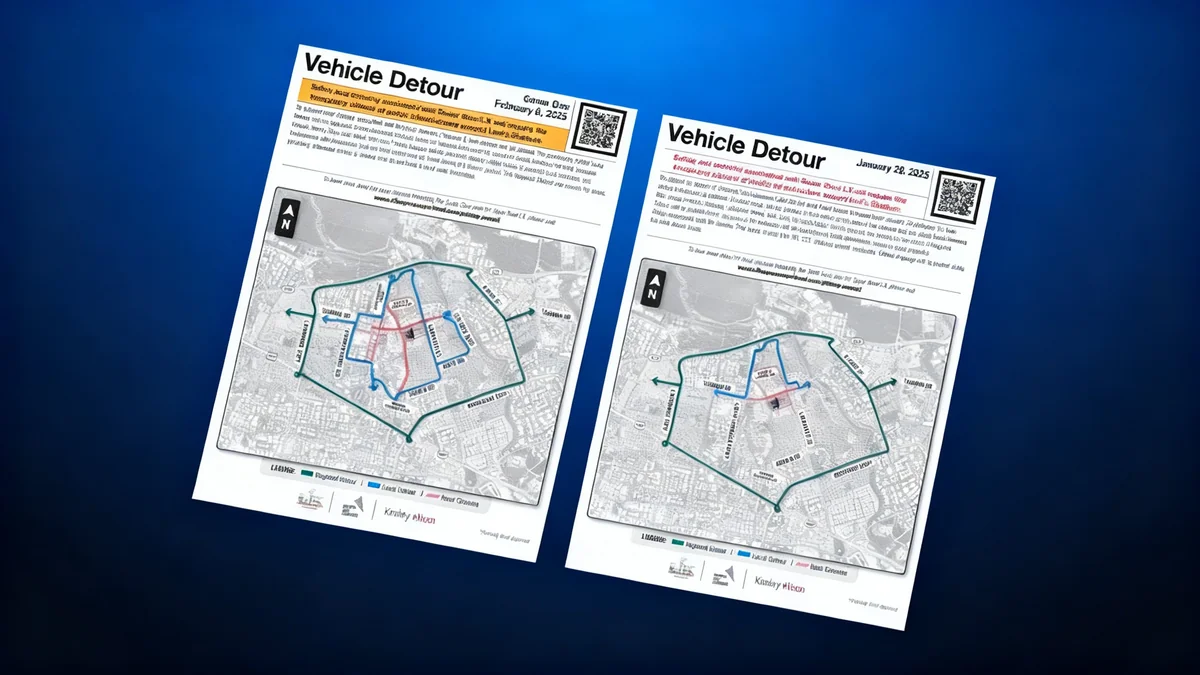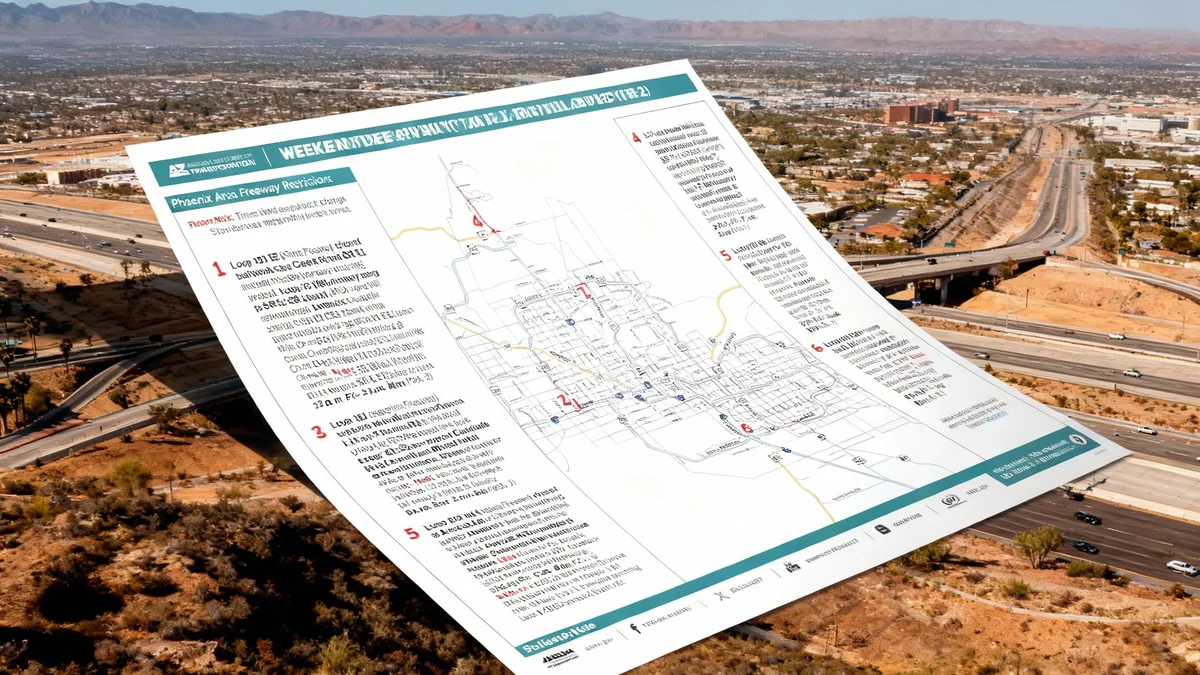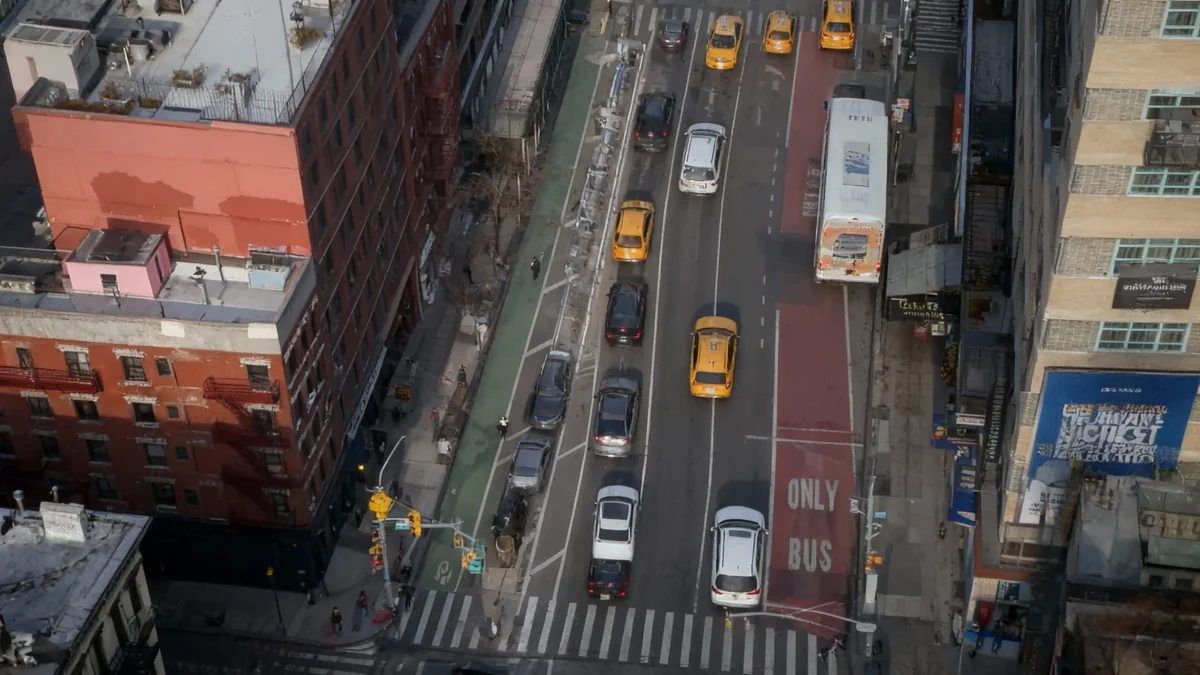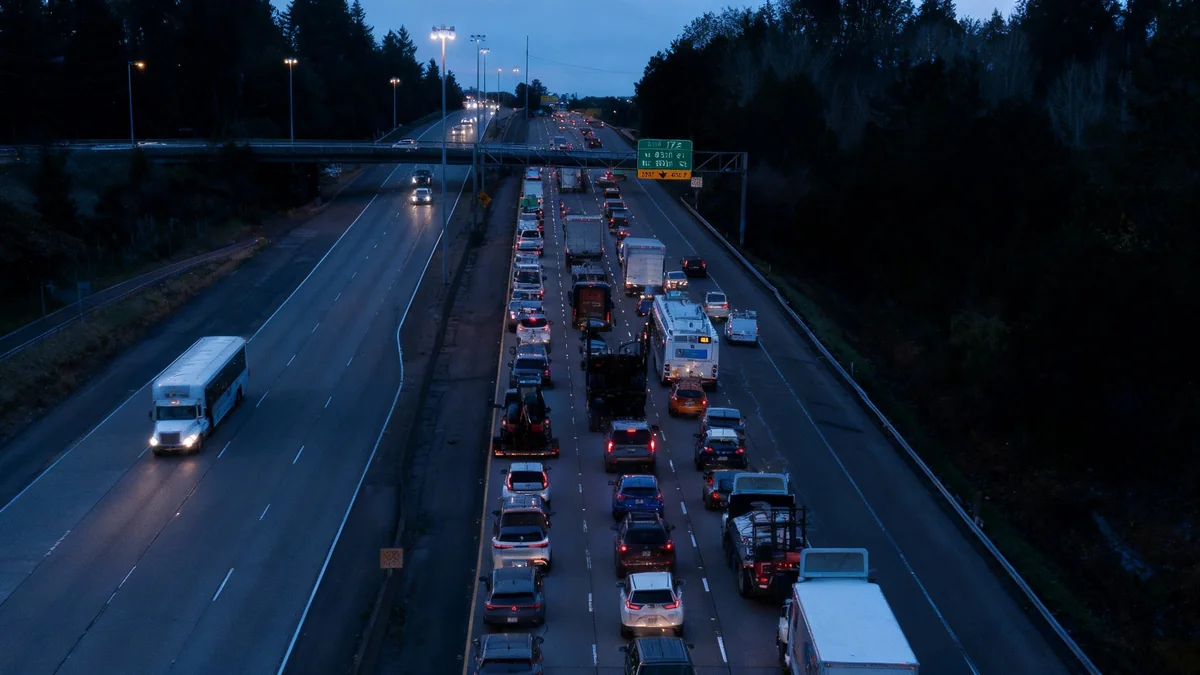All westbound lanes of the 10 Freeway in Colton, California, reopened late Tuesday evening, nearly seven hours after a truck crash caused a significant cooking oil spill. The incident, which occurred around 4 p.m., led to extensive closures and traffic delays stretching for miles.
Emergency crews worked for hours to clear the hazardous material from the roadway. The reopening occurred around 11 p.m., restoring normal traffic flow in the area.
Key Takeaways
- Westbound 10 Freeway lanes in Colton closed for seven hours.
- A truck crash caused a large cooking oil spill.
- Crews worked from 4 p.m. to 11 p.m. to clean the roadway.
- Traffic diversions caused significant delays back to Redlands.
Major Traffic Disruption in Colton Area
The incident began Tuesday afternoon when a truck crashed on the westbound 10 Freeway near Mt. Vernon Avenue. The collision resulted in a substantial amount of cooking oil spilling across the main lanes.
Authorities quickly responded to the scene, recognizing the danger posed by the slippery substance. All westbound lanes of the freeway were immediately closed at Mt. Vernon Avenue to ensure public safety and allow cleanup operations to begin.
Incident Details
- Location: Westbound 10 Freeway at Mt. Vernon Avenue, Colton, California.
- Time of Spill: Approximately 4:00 p.m. on Tuesday.
- Cause: Truck crash resulting in cooking oil spill.
- Duration of Closure: Nearly 7 hours.
Impact on Commuters
The closure created significant challenges for drivers in the Inland Empire. Traffic was diverted off the freeway at Mt. Vernon, leading to severe congestion on local roads.
Motorists experienced considerable delays, with backups extending eastward all the way to Redlands. Many commuters found themselves stranded for hours as they sought alternative routes or waited for the freeway to clear.
"The cleanup of hazardous materials, especially something like cooking oil, requires specific procedures to ensure it's done safely and effectively. It's not just about wiping it up; it's about absorbing it completely to prevent further hazards."
Extensive Cleanup Operation Underway
Cleanup crews faced a challenging task due to the nature of the spill. Cooking oil, while not typically considered highly toxic, creates extremely slick conditions on asphalt, posing a significant risk for vehicles.
Specialized equipment and absorbent materials were used to tackle the spill. Workers focused on soaking up the oil from the road surface to restore traction for drivers. This process is time-consuming and requires careful attention to detail.
Why Oil Spills are Difficult to Clean
Oil, including cooking oil, creates a thin, widespread layer that reduces friction on roadways. This makes driving extremely dangerous. Crews must use absorbent materials like sand or specialized pads to soak up the liquid. After absorption, the remaining residue often needs to be washed away, and the area might require multiple passes to ensure complete removal and restore road safety. This multi-step process contributes to lengthy closure times.
Restoring Road Safety
The primary goal of the cleanup was to ensure the freeway was safe for travel before reopening. This involved not only removing the visible oil but also treating the road surface to prevent any lingering slipperiness.
Officials confirmed that the westbound lanes were deemed safe for traffic around 11 p.m. This marked the end of the seven-hour closure, allowing traffic to resume its normal flow.
Preventing Future Incidents
Incidents like the cooking oil spill highlight the importance of secure cargo transport and driver awareness. Proper loading and securing of goods, particularly liquids, are crucial to prevent spills in the event of an accident.
Local authorities often review such incidents to identify any potential improvements in emergency response or traffic management strategies. The swift closure of the freeway, despite causing delays, was a necessary step to protect drivers from a potentially dangerous road hazard.
- Cargo Security: Ensuring all truck cargo, especially liquids, is properly secured.
- Driver Training: Emphasizing safe driving practices, particularly for commercial vehicles.
- Emergency Response Protocols: Regularly reviewing and updating procedures for hazardous material spills on major roadways.
The reopening brought relief to many drivers who had been impacted by the extensive delays throughout Tuesday evening. The quick action of emergency services helped manage the situation and eventually restore normal conditions on the busy freeway.





